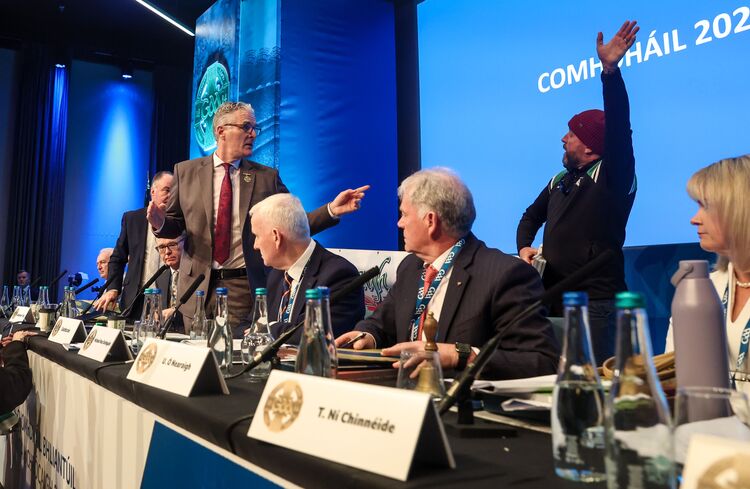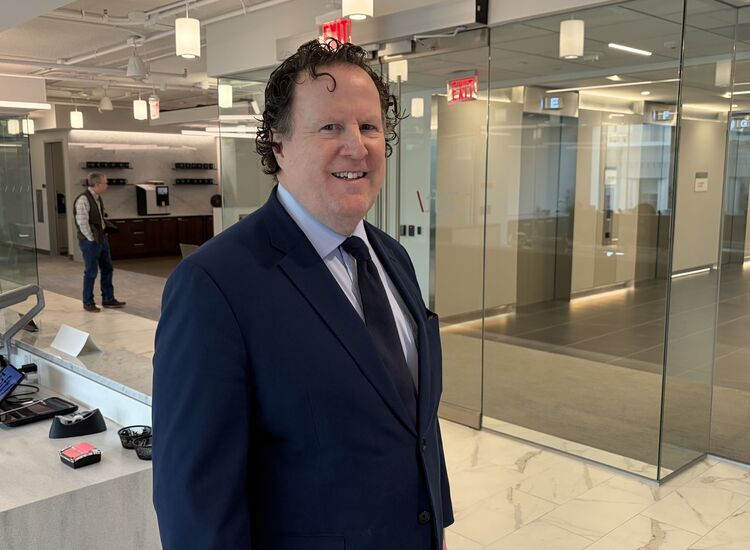By Ray O'Hanlon
I’m chasing my tail each and every day with regard to technology. I work with a computer, yes, use email, yes. In terms of the global human population I’m actually both advance and privileged in a technological sense.
But when compared to my kids I’m a caveman.
A concerned caveman, mind.
There was a time - and yes this is a simplistic way of putting it - when your kid came in from school with a bloody nose and you knew instantly that all wasn’t heavenly in the school yard. or outside the school gates.
Growing up has never been easy, being in school has never been easy, being a teenager has never been easy. I well remember the kind of hazing and outright bullying that went on in my school, an all boys affair back in Ireland when the limits of electronic communication were clearly defined - a rotary phone in the home with a parent usually within listening distance.
Most of the “bullying” occurred within accepted confines. When we reached our pre-pubescent years what we called “slagging” was a daily fact of life. You gave it, you got it.
Most of us got through this verbal minefield though, for sure, it was a burden that exceeded the abilities of some to cope with.
But, bad as it was, it tended to be relatively obvious, relatively easy to spot, relatively easy to avoid.
Now consider the technology of “social” networking which, in the case of Phoebe Prince, was anything but “social,” utterly unavoidable, though how easy to spot is now being hotly argued.
The Phoebe story, and its utterly appalling lowest point, her suicide, is turning into a text book case for our wired and wireless times.
First up, there are a lot of Phoebe-like cases out there. Hers happens to be one that has lately landed with the loudest bang in the chicken and egg situation between popular imagination and mass media coverage.
The fact that there is a transnational aspect to the tragedy, and that Phoebe Prince was subjected to ethnic slurs, among others, has added to the momentum in a story that has risen to an entirely new pitch after the local district attorney brought charges against Phoebe’s alleged tormentors at South Hadley High in Western Massachusetts.
Phoebe was apparently subject to bullying of every stripe. But if the bloody nose was, and is, a red flag, most of Phoebe Prince’s bleeding was internal.
In figurative terms, she died from a broken and bleeding heart.
A few years ago I got to grips with the issue of kids and social networking technology for a few minutes at a meeting for parents in our local high school. Our eldest daughter was about to enter the freshman class (this year she graduates). The technology of four years ago, at least in my tech-challenged mind, was still largely to do with cell phones with which you spoke to other people.
I posed a question at the meeting with regard to cell phone use in the school. Phones were allowed in the cafeteria and in the halls between class periods. This, I discerned, was a fairly liberal policy when compared to, say, New York City.
I offered up a scenario related to the signs outside schools warning drug dealers of harsher penalties if they went about their dirty business within the school’s “drug free” zone.
I asked: what if deals were going down between a dealer and a kid by phone while the student was in school?
I spotted the “we’ll get back to you on that” look before the words were spoken.
Fact was, and is, I sympathize with teachers and school administrators these days because they are having to cope with the ability of students to communicate for good, for ill, and very ill, with virtual impunity and with a reach that leaves in the dust the length of an arm that might deliver a bloody nose or a black eye.
So I didn’t press the question, just let it hang in the ether.
What startled me though was the reaction of another parent, a woman sitting beside me, who interpreted my question as an assault on the very right to bear cell phones.
“It’s about freedom,” she hissed. And I mean “hissed.”
So, and logically, I have a certain amount of sympathy for the teachers and administrators at South Hadley - at least at this stage of the investigation - because they not only have to deal with kids on the rampage 24/7 with nano-technology, but in all likelihood parents that will hiss like bejaysus if there is any effort to curtail little Johnny and little Mary’s God-given right to do what they want, when they want, with those little devices that have become the golden calves of our times.
What Phoebe Prince had to cope with can only be imagined. But she must have felt surrounded with no way out. From her perspective, in her world, the cyber assault directed at her had gone viral. She could not look any one of her peers in the eye without wondering.
Had it been a bloody nose in the yard she might have coped. That’s just stick and stone bullying, a musket compared to today’s hand-held nukes.
The weapons deployed against Phoebe, the ones that really struck home, were words.
The poor, poor kid.
Phoebe’s story reached the front page of the New York Times on Good Friday. The Times carried an op-ed in the same edition headlined “The Myth of Mean Girls.” The authors, experts in their field, argued that their work had shown that “violence by girls has been plummeting for years.”
Fair enough, the authors might be on firm ground in statistical terms, but they came across as being primarily focused on physical violence, the bloody nose in the playground variety.
The Phoebe Prince case inhabits an entirely new universe, one in which the old saying that “sticks and stones will break my bones but words will never hurt/kill me” simply doesn’t apply anymore.
These days, it is the words that do most damage, not just face to face insulting ones, but overwhelming avalanches of them that whirl around in cyberspace with kids like Phoebe caught in a vortex from which there is no escape.
Only there is an escape. The ultimate one, the one that Phoebe took, or at least thought she was taking.
But even after she took her own life it wasn’t over. Words, mean words, the raised daggers of our socially networked, but increasingly socially illiterate age, pursued her very memory.
My question remains, “what if?”
But already I’m hearing the hissing.









